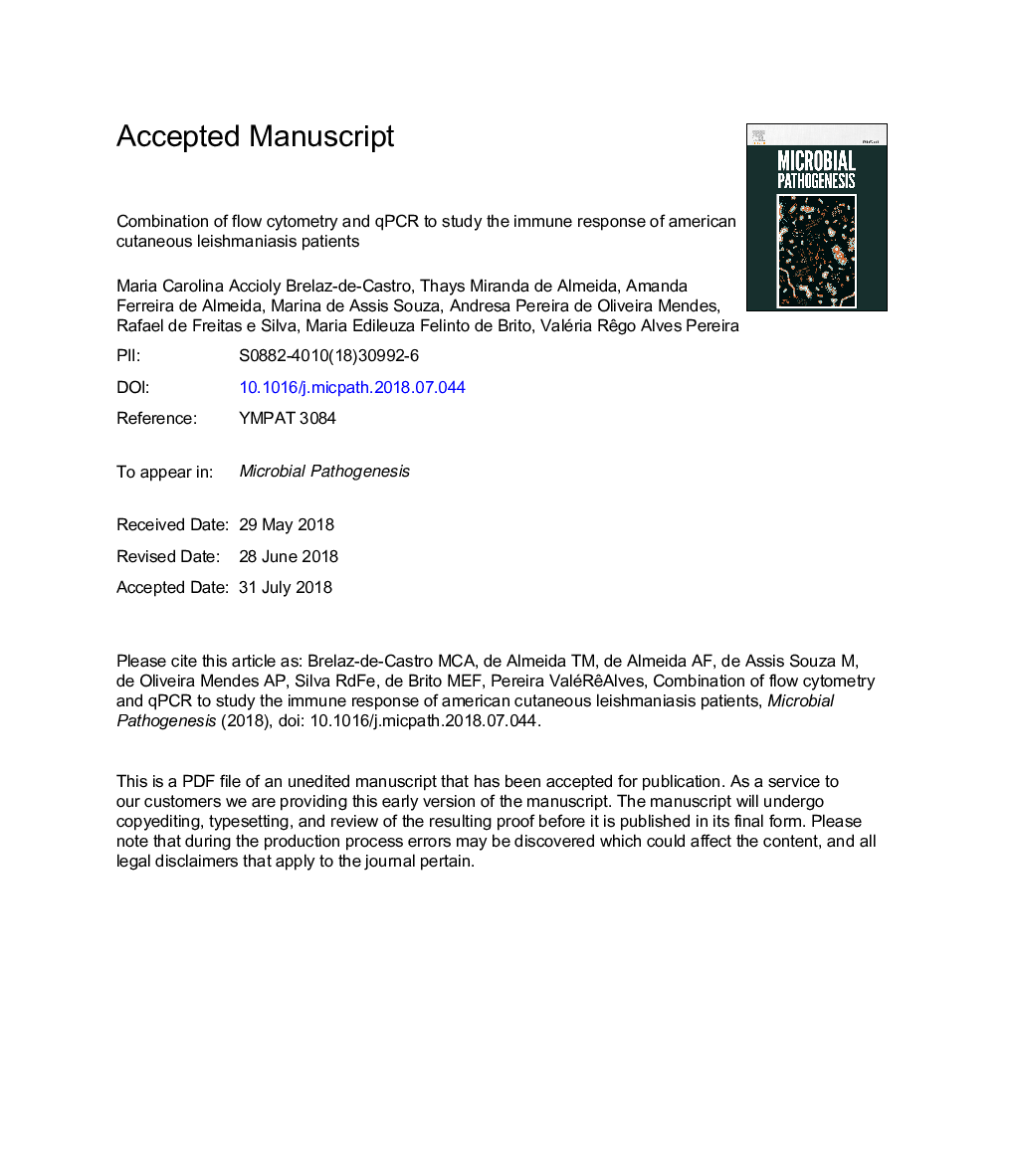| Article ID | Journal | Published Year | Pages | File Type |
|---|---|---|---|---|
| 8749193 | Microbial Pathogenesis | 2018 | 22 Pages |
Abstract
American Cutaneous leishmaniasis (ACL) is a public health problem. The immunological response is mainly dependent on T cell cytokine responses and might influence disease presentation, susceptibility and development. The understanding of the host immune response role in the control and in the pathology of leishmaniasis is relevant and has implications on diagnosis, follow-up and vaccine development. In this study, the differences in the immune response and T cell profile of patients before treatment was investigated through flow cytometry and real time PCR in peripheral blood mononuclear cells after different antigenic stimulations. Among the main findings are the significant presence of TNF and IFN-γ gene expression after 24â¯h of in vitro stimulation, and 48â¯h later the presence of CD4+ T and CD8+ T cells producing IL-10 and IL-4. This may be due to the differences in cytokine release over time and the presence of cells other than lymphocytes influencing the mRNA transcript detection. Evaluation of the immune response of individuals with leishmaniasis or other diseases should associate different technologies and times points for a clear and more reliable assessment of the immune response. This would help in the design of vaccine strategies/immunotherapies.
Keywords
Related Topics
Life Sciences
Immunology and Microbiology
Microbiology
Authors
Maria Carolina Accioly Brelaz-de-Castro, Thays Miranda de Almeida, Amanda Ferreira de Almeida, Marina de Assis Souza, Andresa Pereira de Oliveira Mendes, Rafael de Freitas e Silva, Maria Edileuza Felinto de Brito, Valéria Rêgo Alves Pereira,
